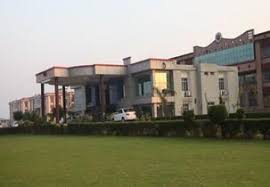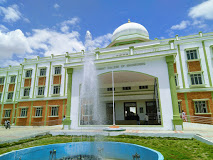
India plans to fully utilize its share of water under the Indus Waters Treaty of 1960. This was articulated by power and new renewable energy minister Raj Kumar Singh. According to the Indus Waters Treaty, whoever builds the project first will have the first rights on the river waters. India and Pakistan signed the treaty in 1960 after nine years of negotiations, with the World Bank being a signatory. The treaty sets out a mechanism for cooperation and information exchange between the two countries regarding their use of rivers.
Daily Current Affairs Quiz 2019
The reorganization of the state into two Union territories will give the government direct control over J&K’s affairs, which in turn is expected to speed up the process of granting approvals for infrastructure projects.
In response to a Mint’s query about developing hydropower projects in Jammu and Kashmir post the state’s reorganization, Singh said that hydro power projects have the ability to improve the per capita income in the areas where they come up. Singh cited the examples of state such as Himachal Pradesh and Sikkim where such projects have come up and also India’s neighboring country Bhutan, wherein around 90% of the electricity is sold to India.
State run NHPC Ltd is the main supplier of electricity to J&K and the largest investor in the state. It has 2339 megawatts (MW) under operation in the state and plans to develop projects totalling 3,814 MW on its own and through joint ventures (JVs). These projects include the 800MW Bursar project and the 850MW Ratle project. NHPC is also implementing the Pakal Dul (1,000MW), Kiru (624MW) and Kwar (540MW) hydropower projects in a joint venture in the state. Apart from raising objections on the 330MW project on the river Kishanganga, a tributary of Jhelum, Pakistan had also raised objections on the 1,000 MW Pakal Dul and 48 MW Lower Kalnai hydroelectric projects on River Chenab.
After the International Court of Arbitration at The Hague ruled in India’s favour in 2013 on the Kishanganga project, India expedited its construction with Prime Minister Narendra Modi in May 2018 dedicating the NHPC Ltd’s hydropower project to the nation.
In a televised address on Thursday, Prime Minister Modi said that the scrapping of Article 370 and Article 35A and the integration with the rest of the country had created an enabling system to make a big push for development, providing good governance and a step-up in Union government spending.
With the Jammu and Kashmir Reorganisation Bill that scraps Article 370 and Article 35A in Jammu and Kashmir being passed by the Parliament, decks have been cleared for bifurcation of the state into two Union territories – Jammu and Kashmir, which will have a legislature, and Ladakh, which will be without a legislature.
Executing a hydropower project is time-consuming and tedious. It involves a thorough survey and investigation, detailed project reports, resettlement of the affected population and infrastructure development.
Singh said that the Centre has helped Jammu and Kashmir and will continue helping them.
Mint reported on 7 August about India looking to speed up state run NHPC Ltd’s hydropower projects in Jammu and Kashmir following reorganization of the state that has been hit by an unprecedented cycle of violence in recent years. The task is seen as strategically vital in the context of China developing the controversial China-Pakistan Economic Corridor (CPEC), part of its showpiece One Belt One Road (OBOR) infrastructure initiative.





